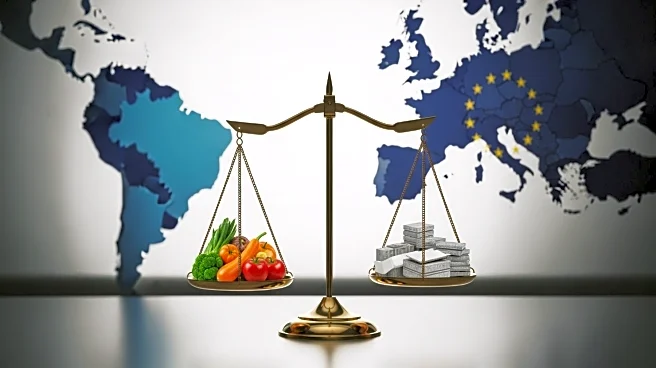What's Happening?
The EU has approved a draft version of its trade deal with the Mercosur bloc, consisting of Brazil, Argentina, Paraguay, and Uruguay. The agreement aims to reduce or remove tariffs on various products, including wines, spirits, chocolate, and soybeans, while protecting 344 European geographical indicators. The deal also includes provisions for animal welfare and cooperation on antimicrobial resistance. France, previously opposed to the deal, has softened its stance due to new protections for farmers. The agreement must still be approved by the European Parliament.
Why It's Important?
The EU-Mercosur deal represents a significant shift in international trade relations, potentially enhancing economic ties between Europe and South America. By reducing trade barriers, the agreement could boost exports and imports, benefiting industries such as agriculture and food production. The protection of geographical indicators and animal welfare standards highlights the EU's commitment to maintaining high-quality standards. The deal's impact on competition and market dynamics could influence global trade policies and economic strategies.
What's Next?
The next steps involve the European Parliament's approval of the deal, which could lead to its implementation. Monitoring the reactions of stakeholders, including farmers and industry leaders, will be crucial. The EU's commitment to protecting its agricultural sector may lead to further negotiations and adjustments in trade policies.










